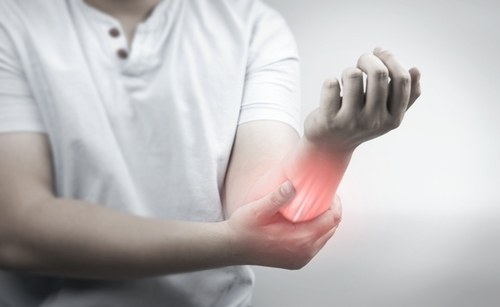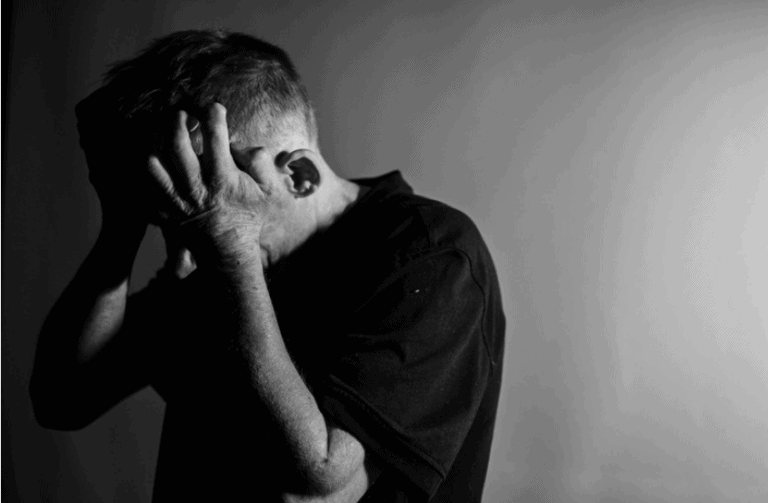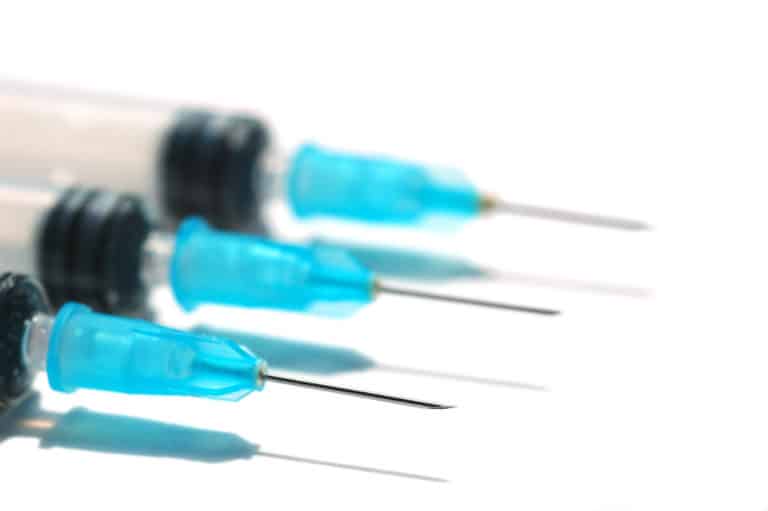Medically Reviewed By Jodi Mabry, Nurse Practitioner (NP)
Suffering from alcoholic myopathy can impact how an individual functions in their daily life. Alcoholic myopathy causes muscle pain, weakness, and cramps, making any task difficult. Understanding the causes and effects of alcoholic myopathy is imperative in treating this condition and improving your quality of life.
This guide aims to showcase what alcoholic myopathy is, the different forms of alcoholic myopathy, the causes and symptoms of the condition, and treatment options.
What is Alcoholic Myopathy?

Alcoholic myopathy is a health condition categorized by muscle weakness and deterioration caused by the breakdown of muscle tissue due to chronic alcohol abuse. Excessive alcohol consumption leads to the degeneration of normal muscle function and can cause other health conditions to form.
It’s estimated that between 40% and 60% of people who suffer from alcohol use disorder will develop a form of alcoholic myopathy. There are two types of alcoholic myopathy to understand: chronic alcoholic myopathy and acute alcoholic myopathy.
Chronic Alcoholic Myopathy
Chronic alcoholic myopathy forms from a lifetime of heavy amounts of alcohol. Because of this, it is more common to see in older adults. This form of alcoholic myopathy may have a higher risk of affecting those with existing alcohol-related conditions, like cardiomyopathy and liver cirrhosis. The symptoms of chronic alcoholic myopathy are significantly different than acute alcoholic myopathy. These symptoms include:
- Dark urine
- Muscle atrophy
- Muscle cramps
- Tightening or twisting of muscles
- Abnormal walking
- Development of acute skeletal myopathy

Acute Alcoholic Myopathy
Unlike chronic alcoholic myopathy, acute alcoholic myopathy occurs from binge drinking. This condition often showcases rhabdomyolysis, which is a breakdown of muscle tissue and releases dead muscle fibers into the bloodstream that can result in kidney failure. Acute alcoholic myopathy develops quickly and affects muscle strength in the middle of the body, impacting the body’s abdominal area. While not everyone will experience the same symptoms, the common symptoms of acute alcoholic myopathy include:
- Cramping
- Muscle tenderness
- Muscle pain
- Swelling in muscles
- Muscle weakness
- Kidney failure
The Causes of Alcoholic Myopathy
Heavy drinking over prolonged periods of time can impact the normal functions of your muscles. Alcoholic myopathy is generally alcohol-induced, but other underlying risk factors can impact your health. These factors are primarily related to how the body absorbs and metabolizes alcohol.
Malnutrition and the dysfunction of specific cells are the leading causes of alcoholic myopathy. Having nutritional deficiencies, like the absence of thiamine, vitamin D, and potassium, can lead to poor muscle health. On top of that, having dysfunctional functions of cells leads to muscle weakness and, eventually, muscle atrophy. To clarify, muscle atrophy is the degeneration and weakening of muscles, while myopathy is a general term for diseases that affect muscles. This distinction is important to note to properly understand the differences in symptoms.
Additionally, excessive alcohol abuse leads to inflammation of the muscles. Metabolizing alcohol produces toxins that create oxidative stress, leading to more inflammation of the muscles. While there are more factors that can contribute to the development of alcoholic myopathy, these factors cover the majority of risks.
Alcoholism and Muscle Atrophy
Alcoholism, also known as alcohol use disorder or chronic alcohol abuse, can contribute to the development of muscle atrophy. Muscle atrophy refers to the loss of muscle mass and strength. The effects of alcohol on the body can lead to muscle atrophy due to a variety of factors. Some of these factors include:
- Poor Nutritional Intake: Because alcoholics typically have poor eating habits, they may not consume the necessary nutrients to sustain their bodies. By not providing enough nutrition to the body, it deprives the muscles of proper growth and maintenance to prevent muscle atrophy.
- Increased Muscle Protein Breakdown: Alcoholism can increase the breakdown of muscle protein, leading to a state of negative protein balance. This occurs due to protein degradation and the promotion of the breakdown over protein synthesis. Muscle atrophy can be accelerated by the imbalance of protein breakdown and synthesis.
- Reduced Physical Activity: A sedentary lifestyle and reduced physical activity are common in alcoholics. This lack of exercise can speed up the development of muscle atrophy and further weaken the muscles.
It’s important to note that alcoholic myopathy is a preventable and reversible condition. Reducing or eliminating alcohol consumption, seeking professional help for alcohol addiction, and adopting a healthy lifestyle are essential steps in preventing the development and progression of this condition.

Treatment for Alcoholic Myopathy
To treat alcoholic myopathy, we must first treat the underlying causes of it. It’s important to note that the recovery process will depend on the severity of muscle damage, the amount of alcohol used, and the length of time the alcohol was consumed.
Treatment for alcoholic myopathy is typically aimed at renourishing the body and strengthening muscles. This process may include addressing imbalances in vitamins and electrolytes, encouraging physical activity, maintaining a proper diet, and utilizing behavioral therapy techniques to address mental health problems associated with alcohol use.
Stopping the use of alcohol will often improve the symptoms of alcoholic myopathy or reverse them altogether. While for acute alcoholic myopathy, the symptoms may be reversed in as little as a few days, it can take up to a year for chronic alcoholic myopathy symptoms. If you find that stopping alcohol consumption is difficult, you may be suffering from alcohol use disorder and will need help from a healthcare provider at a treatment center.

Alcohol Addiction Treatment in Asheville, NC
At Asheville Recovery Center, located in Asheville, NC, we provide our clients with comprehensive and individualized treatment programs to address all aspects of alcohol addiction. While alcoholic myopathy is a symptom of alcohol addiction, our highly trained staff are dedicated to providing holistic therapies to help treat this condition. The journey to recovery can be difficult, but we can help guide you toward life-long sobriety.
If you or a loved one are struggling with alcohol addiction or substance abuse, contact us today to learn more about our treatment programs. Begin your new life with us today.






